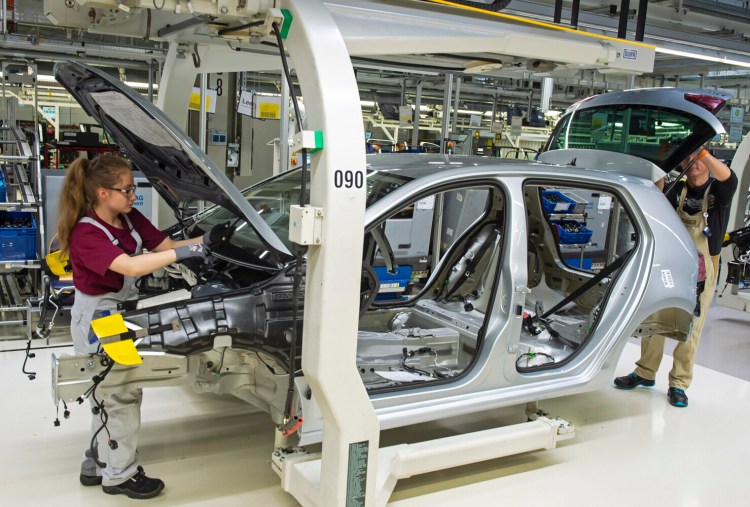We in this country feel great. We are blessed with talented innovators and richness of natural resources, including coal, oil and natural gas, as well as hydropower. With these power sources we have built our economy and the relative comfort in which we live.
However, all nations who have followed our economic and lifestyle lead have recently come to realize that burning fossil fuels comes with an Achilles heel, a serious vulnerability — namely, a steady increase in the carbon dioxide emissions that are warming the planet, increasing the size and intensity of storms, floods, droughts and wildfires, melting ice and raising sea levels.
All nations agreed in 2015 on the need to cut emissions, setting and updating their own targets under the terms of the Paris Agreement to limit global warming to 3.6 degrees Fahrenheit (2 degrees Celsius) above pre-industrial levels, aiming lower.
Thanks to President Trump, we in the U.S. are planning to withdraw from the agreement, and several national policies have been put in place to reduce our commitments.
Unfortunately, instead of making America great again, that will surely make America late to the game.
Let me explain.
Around the world people are determined to reduce emissions by installing alternative energy sources and using related equipment. In order to be great again, we’ll need to rev up our engines of innovation in energy efficiency, generation, use and storage to stay ahead of this new, clean industrial revolution.
Instead, we’re falling behind in a number of areas, and missing opportunities for adding jobs along the way.
For energy efficiency, take the concept of “net zero.” It requires designs and codes for buildings that generate as much energy as they use. The European Union is planning for all new buildings to be constructed under such standards by 2020. Our building codes are weak in comparison, and we’re also moving too slowly towards improving energy efficiency of existing buildings. That in itself is a job creator, and saves money for the building owner.
For energy generation, everybody is talking about renewable energy, the costs of which keep plummeting, while effectiveness keeps increasing. Both wind and solar energy were invented in the U.S.; the first electricity-generating wind turbine was invented in 1888 in Cleveland, Ohio, while solar panels were invented in 1954 at Bell Labs.
Yet Denmark is now a world leader in wind energy with 47% of its power coming from that source. China has also been busy installing wind turbines — as has Texas and several other states. That adds jobs. But what national policy do we have?
For solar, Germany must surely win the prize for effort, despite being a cloudy country. But China leads the world in solar installations, with twice as many installed compared to the U.S. Are we now late to the game on wind and solar?
Let’s take electric transport next. Here China leads with twice as many electric vehicles on the road. In some cities all public vehicles, including buses and sanitation trucks, are electric. China’s EVs are 95% domestically made, so how long will it be before we and many others around the world are buying Chinese EVs? See what I mean about late to the game?
Eventually, almost everything we do will likely be electrified, and with variable winds and daily changes in the sun, we will need battery storage. Here the U.S. is keeping up on research and development with several companies. This is an area where we can excel in the necessary redesign and enlargement of electrical systems needed worldwide.
Finally, numerous co-benefits in the health field will come by reducing pollution from emissions. Maine, along with other northeastern states, has a high incidence of asthma, above 11%. That will drop once we take on reducing emissions.
Furthermore, with renewable energy, there will be no spills of oil and no gas explosions. And coal mining, once retired, will end the scourge of black lung disease for miners.
But how will we set meaningful goals for being “carbon neutral” or “100% renewable energy”? The Maine Climate Council is tackling these questions for us.
Will our nation take on the challenge by using our innovation and human capital to be great again?
Peter Garrett, of Winslow, is a member of Sustain Mid Maine Coalition’s Public Policy Team. He also serves on the Sustain Mid Maine board of directors and is the state of Maine coordinator of Citizens Climate Lobby.
Copy the Story LinkSend questions/comments to the editors.



Success. Please wait for the page to reload. If the page does not reload within 5 seconds, please refresh the page.
Enter your email and password to access comments.
Hi, to comment on stories you must . This profile is in addition to your subscription and website login.
Already have a commenting profile? .
Invalid username/password.
Please check your email to confirm and complete your registration.
Only subscribers are eligible to post comments. Please subscribe or login first for digital access. Here’s why.
Use the form below to reset your password. When you've submitted your account email, we will send an email with a reset code.